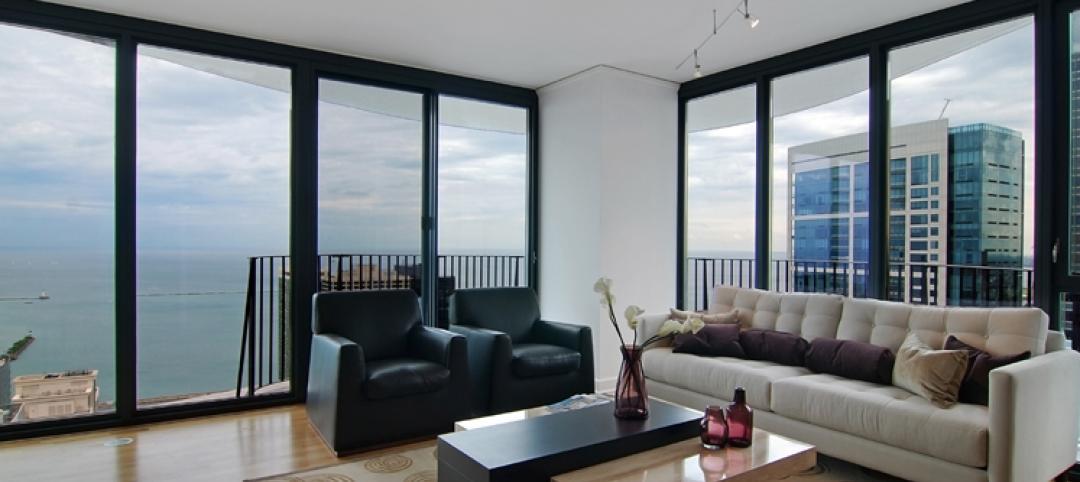The economic boom in Asia is reflected in the development of modern temples of consumerism. Nine out of ten of the world’s biggest shopping malls are located in Asia. Offering much more than “shop till you drop” opportunities – malls are becoming amusement parks and lifestyle centers surrounded by shops.
Emporis.com generated the Top 10 rankings, which are based on the gross leasable area, the area used for revenue-generating activities. Historically, malls have always been the icons of America – the first mall ever was built in Minneapolis in 1956.
However, Asia’s economic boom has resulted in the rise of consumerism and the development of mega-malls. Nowadays, Asia has more malls than America, and the two largest are located in China.
The dimensions of the malls is demonstrated in this comparison: the second biggest mall, Golden Resources Mall, has an area of 557.419 m², the size of about 75 soccer fields.
But some mega-malls in Asia are experiencing problems. New South China Mall is the biggest mall in the world with 600.153 m² of shopping space – most of it empty, with little consumer traffic and a high vacancy rate. It has been classified as a “dead mall”.
In recent years, developers have invented new ways for the mega-mall to survive in this economy. Gone is the store-dominated shopping centre welcoming instead, an age of mixed-use “lifestyle centers”. The Dubai Mall offers an ice-rink and aquarium on an area of 350.244 m². The Persian Gulf Complex, once completed, will house an indoor amusement park, prayer room, and helipad.
Another strategy calls for ways to combine environmental solutions with architecture. An indoor rainforest with koi ponds and the largest rooftop garden in Southeast Asia was implemented by 1 Utama mall in Malaysia. CentralWorld in Thailand features an indoor salt-water lake with sea lions. Trends to include office and residential space, such as the Cehavir Mall in Turkey, are also a survival method of mega-malls. BD+C
CLICK THE LINK BELOW TO VIEW THE TOP 10 LIST
Related Stories
| Aug 11, 2010
EwingCole to merge with healthcare specialist Robert D. Lynn Associates
EwingCole, a nationally recognized architectural, engineering, interior design, and planning firm with more than 320 professionals, today announced that it will combine its practice with Robert D. Lynn Associates of Philadelphia, a 40-person firm with a robust portfolio of healthcare projects. The combination will create the Delaware Valley¹s largest and most comprehensive firm with an emphasis on healthcare architecture, and a national scope and presence.
| Aug 11, 2010
Jacobs, Arup, AECOM top BD+C's ranking of the nation's 75 largest international design firms
A ranking of the Top 75 International Design Firms based on Building Design+Construction's 2009 Giants 300 survey. For more Giants 300 rankings, visit http://www.BDCnetwork.com/Giants
| Aug 11, 2010
See what $3,000 a month will get you at Chicago’s Aqua Tower
Magellan Development Group has opened three display models for the rental portion of Chicago’s highly anticipated Aqua Tower, designed by Jeanne Gang. Lease rates range from $1,498 for a studio to $3,111 for a two-bedroom unit with lake views.
| Aug 11, 2010
AIANY partners with New York's building department to launch design competition for safer, more appealing sidewalk shed
The New York City Department of Buildings (DOB) and the New York Chapter of the American Institute of Architects (AIANY) today announced the launch of the urbanSHED International Design Competition with support from the Alliance for Downtown New York, ABNY Foundation, Illuminating Engineering Society New York City Section (IESNYC), and the New York Building Congress.
| Aug 11, 2010
Construction employment declines in 48 states in August compared to last year
Construction employment saw significant declines in all but two states this August compared to last year according to an analysis of new state-by-state employment figures released today by the federal government. The analysis, conducted by the Associated General Contractors of America, however did show that the number of states gaining construction jobs increased slightly in August compared to July 2009.
| Aug 11, 2010
Stimulus funding helps get NOAA project off the ground
The award-winning design for the National Oceanic and Atmospheric Administration’s (NOAA) new Southwest Fisheries Science Center (SWFSC) replacement laboratory saw its first sign of movement on Sept 15 with a groundbreaking ceremony held in La Jolla, Calif. The $102 million project is funded primarily by the American Recovery and Reinvestment Act (ARRA), resulting in a rapidly advanced construction plan for the facility.
| Aug 11, 2010
New book on ‘Green Workplace’ by HOK’s Leigh Stringer, a BD+C 40 under 40 winner
The new book The Green Workplace is a comprehensive guide that demonstrates how green businesses can reduce costs, improve recruitment and retention, increase shareholder value, and contribute to a healthier natural environment.
| Aug 11, 2010
BIM adoption rate exceeds 80% among nation’s largest AEC firms
The nation’s largest architecture, engineering, and construction companies are on the BIM bandwagon in a big way, according to Building Design+Construction’s premier Top 170 BIM Adopters ranking, published as part of the 2009 Giants 300 survey. Of the 320 AEC firms that participated in Giants survey, 83% report having at least one BIM seat license in house, and nearly a quarter (23%) have 100-plus seats.








